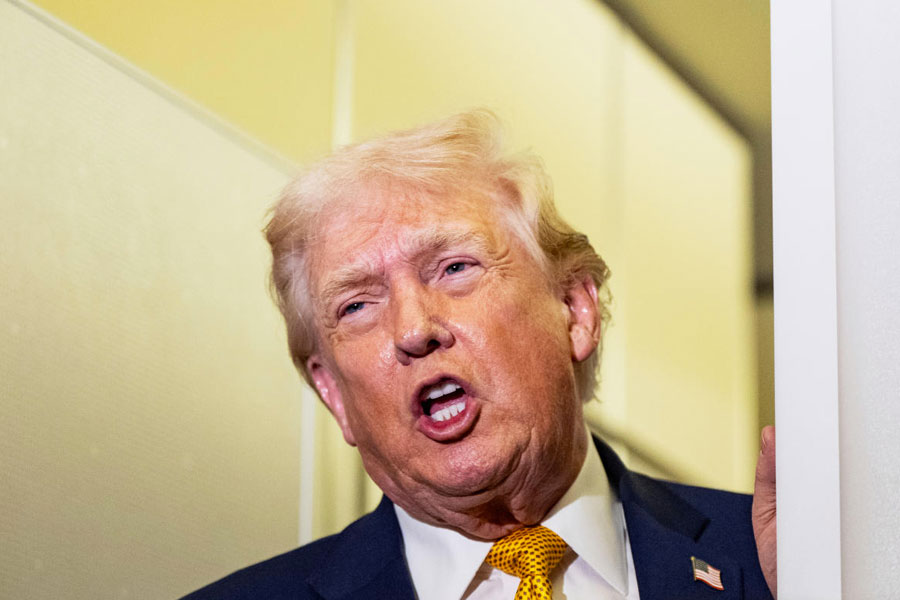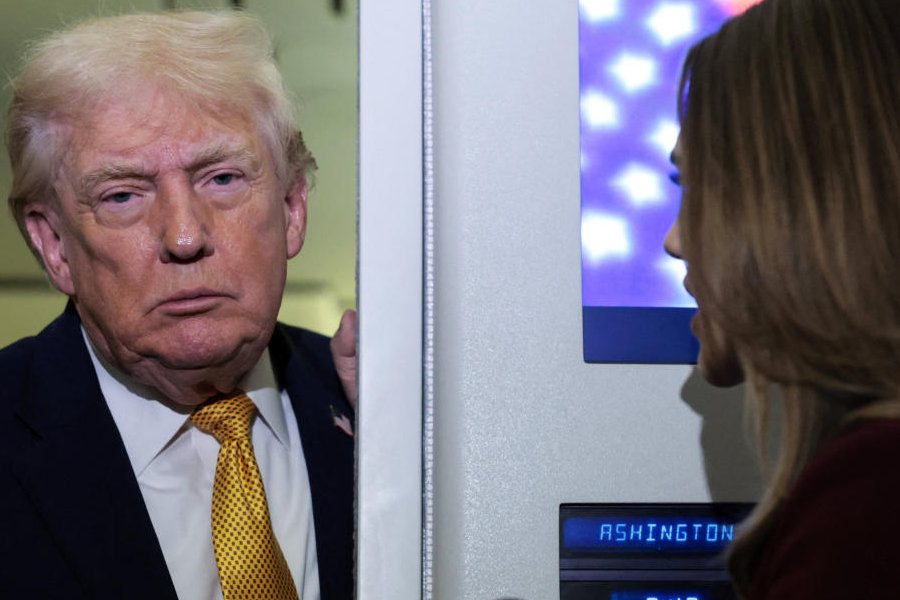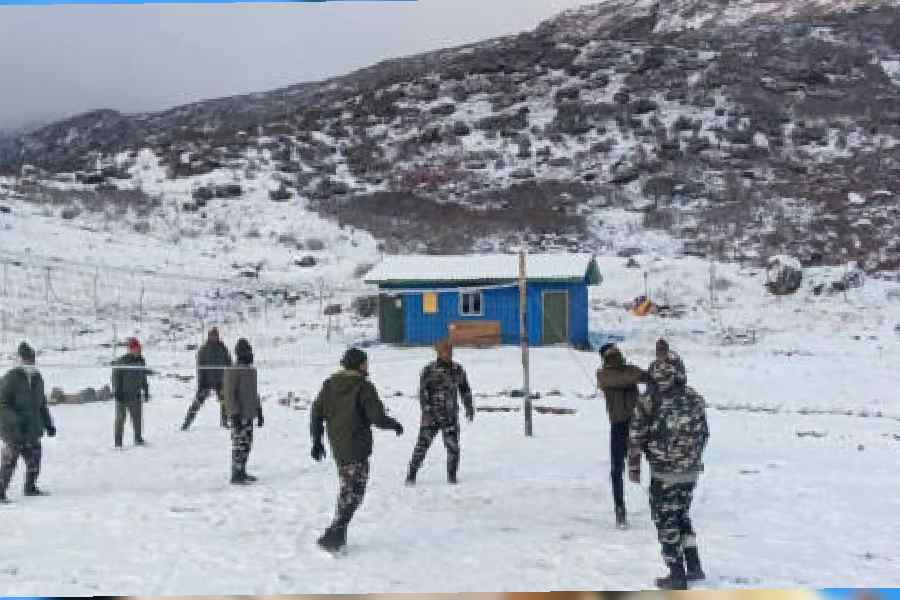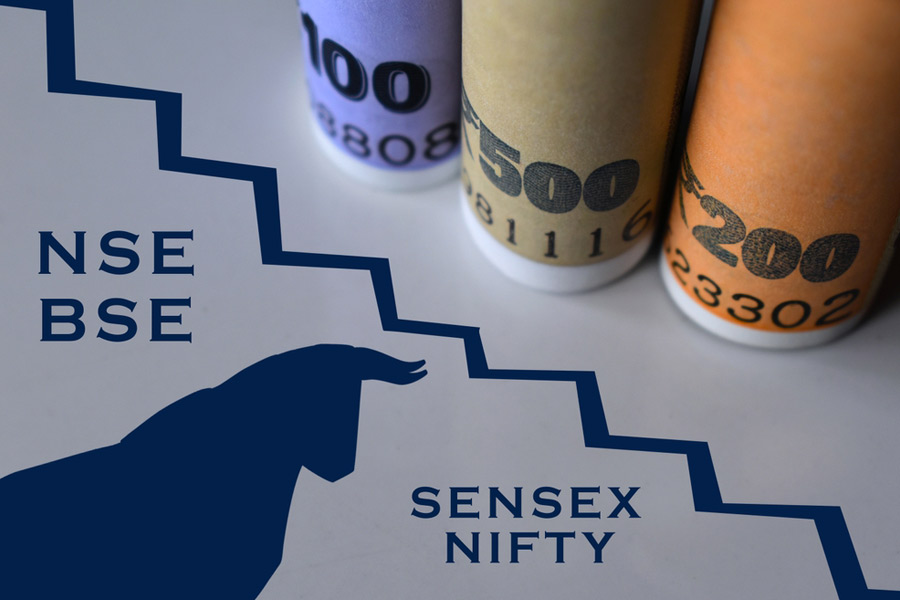.jpg)
April 15: A 400-year-old tradition introduced during Akbar's reign embraced technology this Poila Baisakh.
Shops in several districts accepted haal khata (updated account) payments through digital modes today, warming up to a medium whose use has increased manifold in the aftermath of demonetisation.
Haal khata, a tradition among traders of opening a new ledger with a puja on the Bengali new year, started during Mughal emperor Akbar's rule. On the first day of the new year, traders close old ledgers and open new ones. Customers are invited to settle debts and are given sweets, snacks and gifts.
The haal khata, traditionally cloth-bound and red in colour, is believed to have originated soon after Akbar established the new Bengali calendar in 1584 to ease taxation.
For the first time since then, cash has been replaced by online payment modes. Many shop owners in Ranaghat, Chakdah, Krishnagar and Kalyani in Nadia, Behrampore in Murshidabad, Bolpur, Rampurhat and Suri in Birbhum, and Asansol and Durgapur in Burdwan today used point-of-sale (PoS) machines and e-wallets to receive money from customers and made entries in the traditional haal khata.
The PoS machines were placed on the decorated, traditional pushpa patra (flower pot), beside a Ganesh idol.
While the bigger traders had PoS machines and primarily received card payments, the smaller ones mostly used e-wallets such as Paytm.

Sanjay Biswas, the proprietor of the garment store Jasoreswari Bastralaya in Ranaghat, said: "This time, haal khata is different. We are using digital payment methods. The change was inevitable after demonetisation." Biswas received e-payments from at least 200 of the 300-odd customers who visited his shop today.
"Demonetisation forced most of us to go digital. Not all of us were comfortable with it in the beginning. But now, we are more or less accustomed to it," he added.
Garment shop owners like Saurav Banthia of Rampurhat said life had become a lot easier with e-payments. "Customers with substantial dues mostly used digital modes today. Those who paid the usual token amounts gave cash," he said.
Most shops, even in the districts, now have digital payment modes. Those who do not have the means to buy or hire PoS machines opt for e-wallets that can be used by anybody with a bank account and a smartphone with Internet connection.
In Asansol and Durgapur, many old shops such as DC Paul & Sons and Sari Centre accepted digital payments today.
"Till last year, I had followed the tradition of accepting money in cash on Poila Baisakh. I used to keep the cash received on a copper plate that also had a Ganesh idol. This time, I kept a PoS machine on the plate," said Somnath Ghati of B.N. Ghati Cloth Store in Asansol.
Additional reporting by Abhijeet Chatterjee, Snehamoy Chakraborty and Alamgir Hossain

.jpg)








